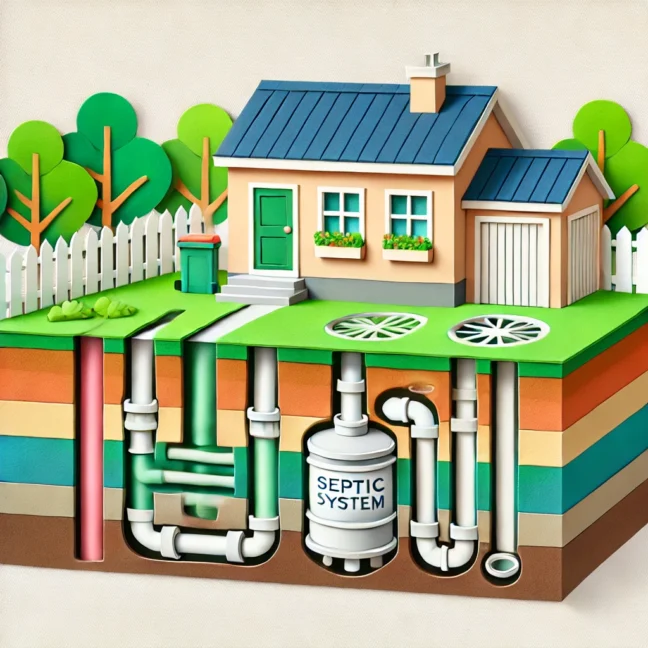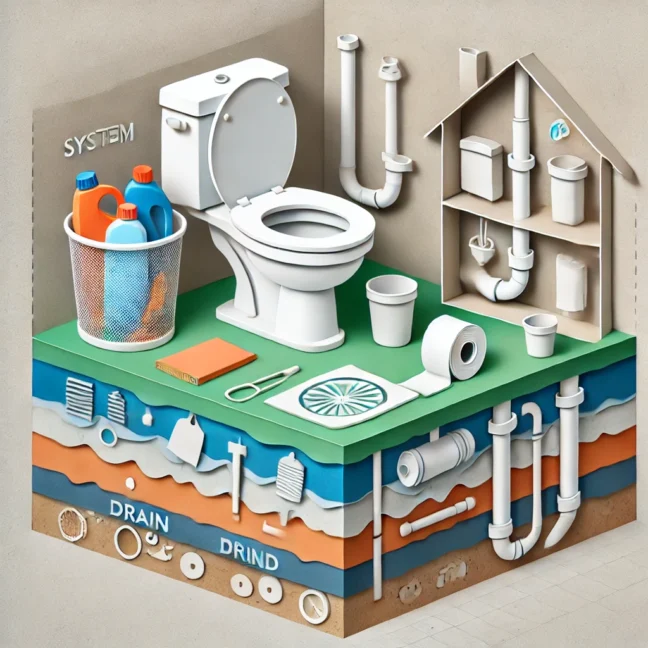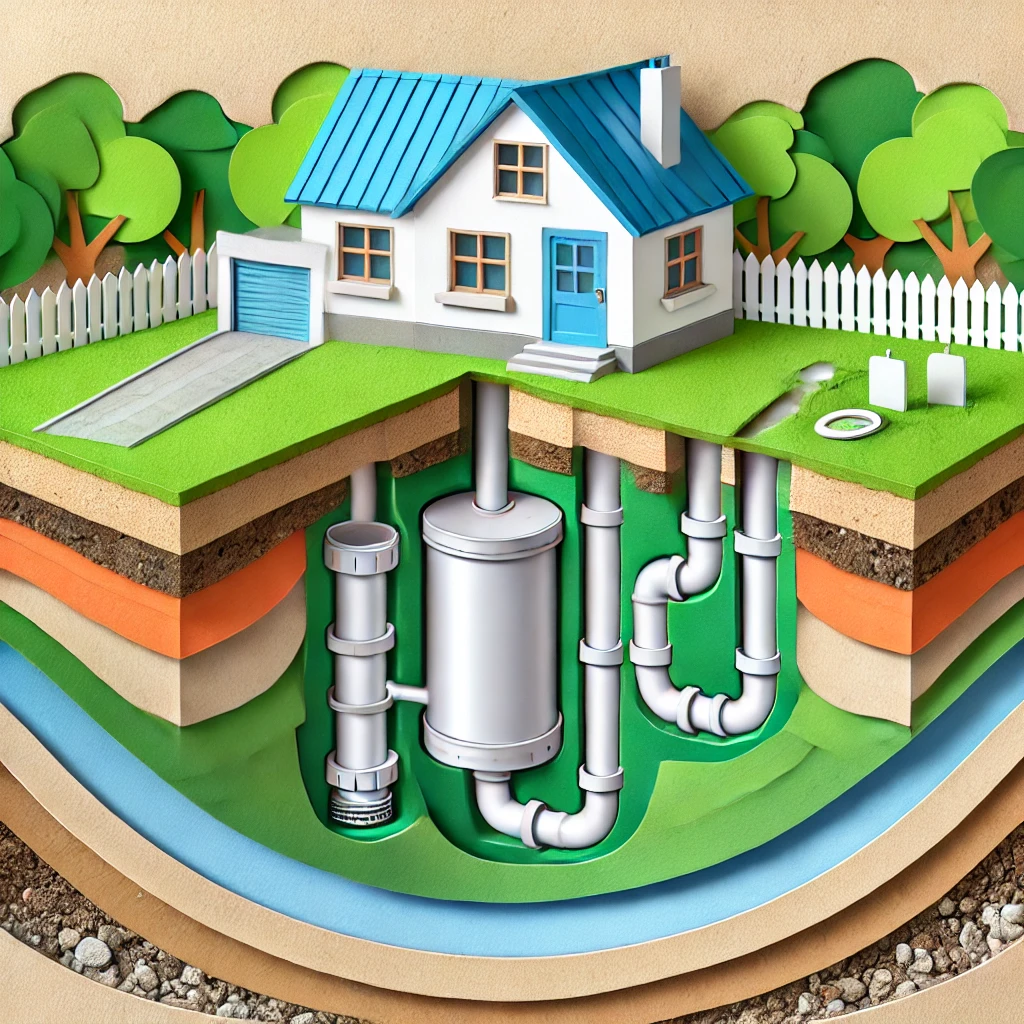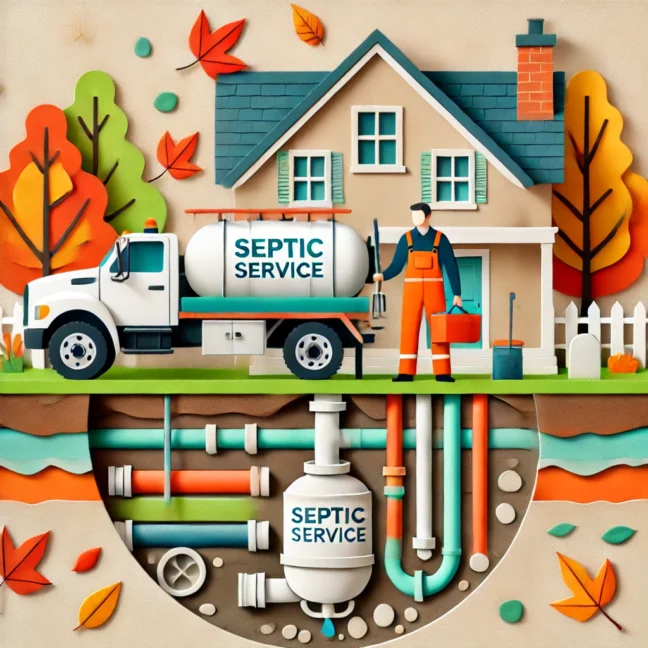(And How to Avoid Them)
Maintaining a septic tank may seem straightforward, but many homeowners unknowingly make costly mistakes. Here are five common errors and some practical tips for avoiding them, so you can keep your septic system healthy and functional.
Mistake #1: Overloading the System with Water
Why It’s a Problem
Too much water in your septic system can prevent waste from properly separating in the tank. When wastewater flows in faster than the system can handle, solids might escape into the drain field, leading to clogs and possible system failure.
How to Avoid It
Spread out water usage throughout the day, and avoid using multiple water-heavy appliances (e.g., washing machine, dishwasher, shower) simultaneously. Installing low-flow toilets, faucets, and water-efficient appliances can also help reduce strain on your system.
Mistake #2: Flushing Harmful Items
Why It’s a Problem
Flushing non-biodegradable items or chemicals can clog pipes, disrupt the bacterial balance in your septic tank, and prevent waste from breaking down properly. Items like ‘flushable’ wipes, feminine products, and harsh chemicals are particularly harmful.

How to Avoid It
Stick to flushing only human waste and toilet paper. For everything else, use a waste bin. Avoid using bleach or antibacterial products regularly in your drains, as these can kill the necessary bacteria in your septic tank.
Mistake #3: Ignoring Regular Pumping and Inspections
Why It’s a Problem
Neglecting routine maintenance, like pumping and inspections, allows solids to accumulate in your tank, which can lead to clogs, backups, and even system failure. Regular maintenance prevents these issues and extends the life of your septic system.
How to Avoid It
Schedule a professional inspection and pumping every three to five years, depending on your household size and usage. Regular maintenance is an investment that will save you from costly repairs down the line.
Mistake #4: Using the Drain Field Improperly
Why It’s a Problem
The drain field is an essential part of your septic system, as it treats and filters wastewater. Parking heavy vehicles, planting trees, or building structures over the drain field can damage pipes and compact soil, hindering its ability to absorb water.
How to Avoid It
Keep the drain field clear of heavy objects and avoid planting trees or large shrubs nearby. Opt for shallow-rooted plants that won’t interfere with the pipes, and don’t allow vehicles or heavy machinery to pass over this area.
Mistake #5: Misunderstanding the Role of Septic Tank Additives
Why It’s a Problem
There’s a common misconception that all septic tank additives are either harmful or unnecessary. In reality, high-quality biological additives can enhance the natural bacterial processes within your septic system, improving waste breakdown and overall efficiency. However, relying solely on additives without regular maintenance can lead to system neglect.
How to Avoid It
Choose reputable, high-quality biological additives known to support septic system health. Use them as a supplement to, not a replacement for, regular pumping and inspections. Consult with your septic service professional to determine the best products for your system’s specific needs.
By understanding the beneficial role that quality septic tank additives can play, alongside consistent maintenance, you can enhance your septic system’s performance and longevity.
For personalized advice and professional septic services, contact Action Septic Tank Service at 770-922-1434 or visit our website.
Action Septic Tank Service is located in Alpharetta-Milton, GA, in North Fulton County. We provide residential, commercial, and industrial septic and sewer services for North Atlanta, Metro Atlanta, and surrounding areas. We are open daily from 7:00 AM – 9:00 PM and also offer emergency services.
Septic and Sewer Services: septic pumping, septic cleaning, maintenance, inspections, installations, line repair and replacement, drainfield repair and replacement, hydro jetting, sewer line cleaning, sewer line repair and replacement, dry wells, alternative systems, backhoe work, backflow prevention, excavating, septic treatments, grease trap cleaning and care.
North Atlanta – Metro Atlanta Service Areas: Acworth, Alpharetta, Atlanta, Brookhaven, Buckhead, Buford, Cumming, Decatur, Duluth, Dunwoody, Johns Creek, Kennesaw, Lawrenceville, Marietta, Milton, Norcross, Roswell, Sandy Springs, Smyrna, Snellville, Suwanee, Tucker, Woodstock.





